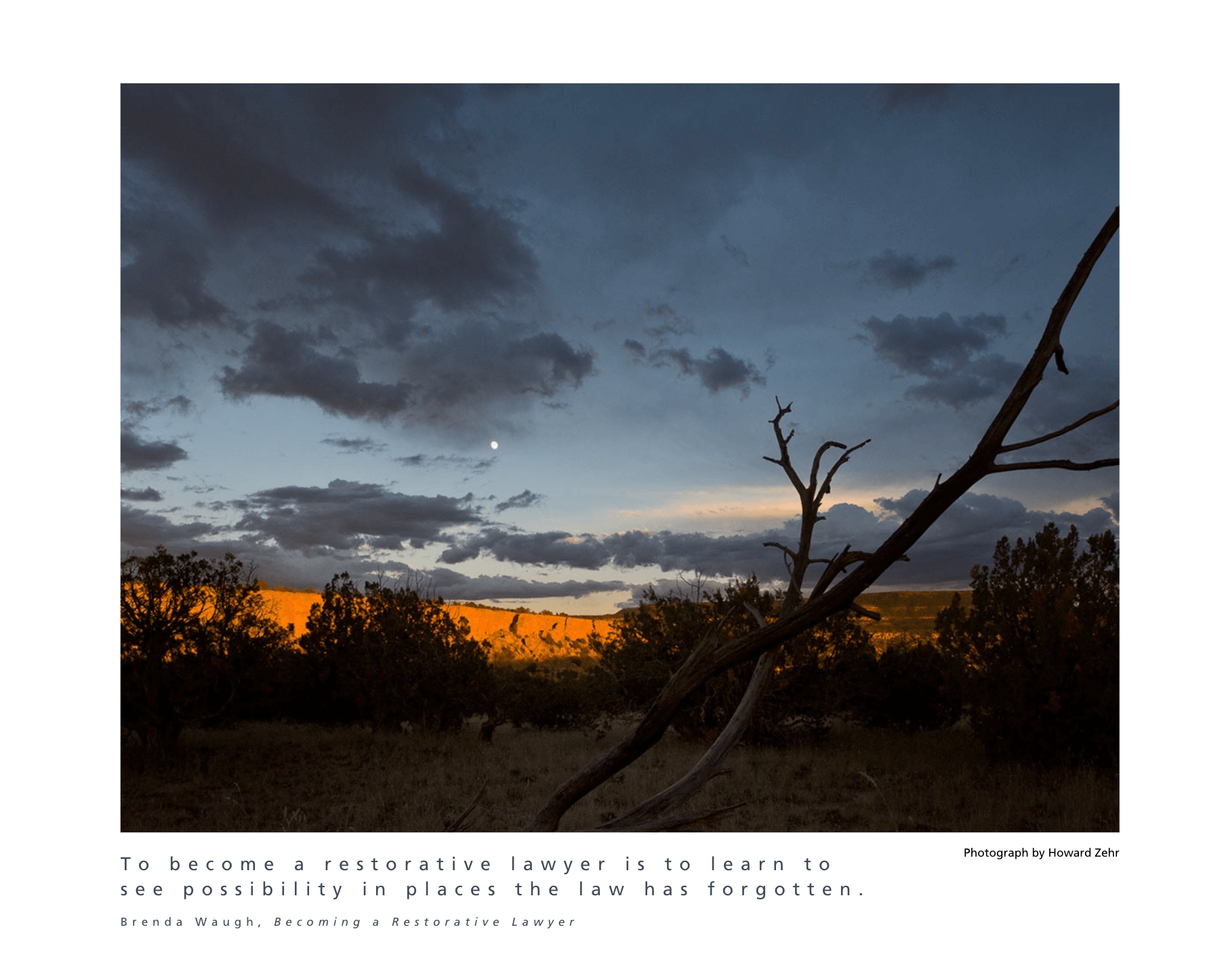Why the Legal Profession Needs More than Reform
Lawyers are trained to fix things. Something breaks? We seek the rule that was broken and the argument that will persuade a neutral as to the suitable punishment or resolution. But after nearly forty years of practicing, I’m wondering if the cracks in the legal profession, the places where our clients and communities are not feeling seen, heard, or satisfied, may be bigger than we imagine. I’m finding that the cracks are big and unlikely to be patched with more rules or polices
For decades, we’ve worked hard to try new systems, update policies, reform ethics codes, and create lawyer wellness programs. These are all great efforts. However, many lawyers remain tired, disconnected, and worn down. And what’s worse: many people are avoiding the legal system to address their disputes. Some don’t trust it, others can’t afford it, and many who do wind up in the system feel more confused and unhappy than satisfied. The problem isn’t just what we do. It’s who we are while we do it. It’s about the soul of our work and the void that clients feel when they are ignored or rushed through a system that feels anything but just.
I’m suggesting that what we need is not more rules, policies, or programs. The profession needs healing. That healing will support and nurture lawyers who can face pain without turning away, who can hold grief and conflict without letting it consume them. We need to become lawyers who have skills, talents, and resources to meet clients where they are and celebrate their humanity while navigating the legal system. We need to understand how we might help to repair the harm and restore the relationships damaged by their legal disputes.
Restoration begins with recognizing that law, at its core, is a human practice. Every brief, negotiation, and judgment involves people. People who are more than the single incident that brought them into our offices. Complicated, fragile, hopeful people. We must simultaneously acknowledge our own humanity and that of the person placing their trust in us to help them navigate what are sometimes the most challenging moments of their lives.
Restorative lawyering asks us to shift our focus: from winning to understanding, from control to connection. It encourages us to bring our whole selves to our work. When we do that, clients stop being “cases” and start being companions on a shared journey to explore disputes, examine options, and, if all goes well, find a resolution that is sufficient for them to heal and place the event in a respected, yet distant, part of their personal history.
Where might we start? When we practice law mindfully, with reflection, deep listening, and respect, we begin to restore what has been lost — not just in the justice system, but within ourselves. We see that accountability can coexist with compassion, and that strength can be combined with kindness.
Law is dynamic. Laws evolve, society changes. But reforms, accompanied by changes in rules and polices, will not be enough. If our hearts that work within them are not healed, a justice deep enough to create subjective restoration cannot be developed.
Restoring the legal profession is about breathing life back into it. It’s about remembering why many of us became lawyers in the first place: to help, to heal, to make sense of the human experience.
Let’s not be satisfied with reforming what we do. Let’s create a new practice that will embrace our humanity and expand the potential for justice and healing of our friends, families, neighbors, and communities. Ready to take the next step? Order my book, Becoming a Restorative Lawyer, from your favorite book seller or the publisher, Good Media Press.

